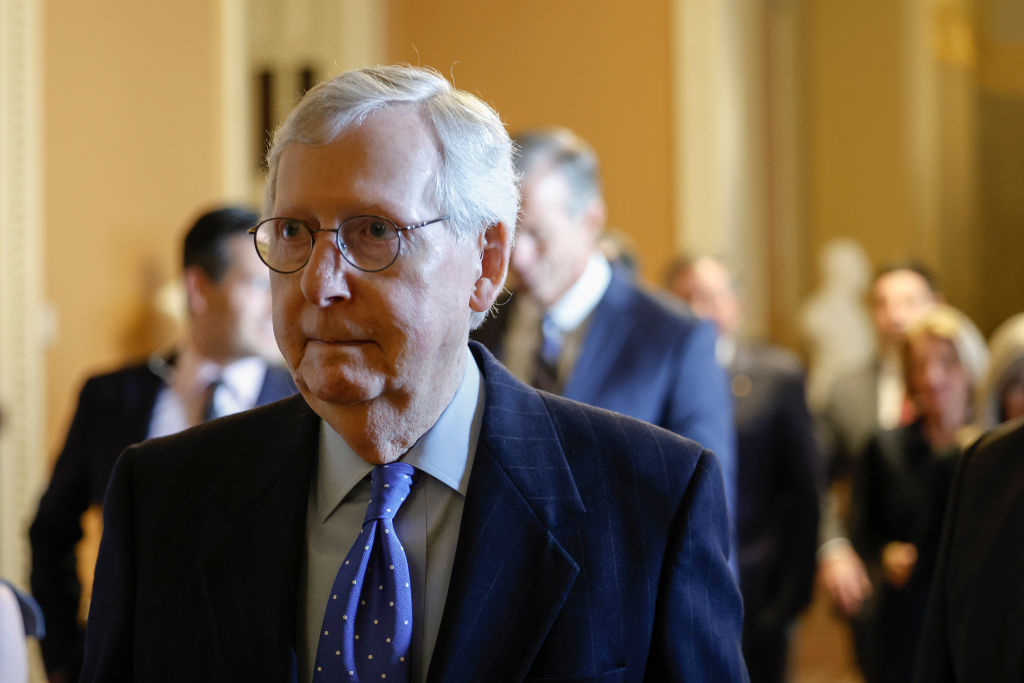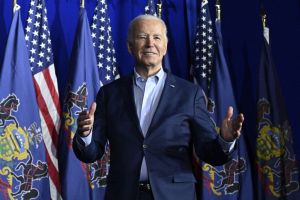After the GOP’s mediocre election performance on November 8, every faction in the party is scrambling to pin the responsibility on someone else. There is plenty of blame to go around, but one person who should not feature highly on that list is Mitch McConnell. Not only has the Kentucky senator been an instrumental force in the GOP’s successes in recent years, he was behind some of the largest funding efforts this past election cycle.
It would be hard to find a leader in the Senate more accomplished and effective than McConnell. Having led the GOP’s Senate caucus since 2007, he has always played his hand with cunning and skill. Before Harry Reid removed the filibuster for non-Supreme Court nominees, McConnell made clear what the result would be: the GOP would respond in kind when in power. The Kentuckian was and is no revolutionary, so he responded proportionately, eliminating the filibuster only for Supreme Court nominees. Always an institutionalist, McConnell was careful not to launch a suicidal retaliation against Senate Democrats, and has held firm on his commitment to maintain the filibuster as it stands today.
Now consider the greatest victory for conservatism in the United States for decades: the overturning of Roe v. Wade. President Trump nominated the justices, but it was McConnell who shepherded them through. Without McConnell, it is very likely that Merrick Garland would have taken Antonin Scalia’s seat in 2016. The senator was instrumental in holding up the confirmation of a new justice before the election, which may have helped tip the balance in favor of Trump over Clinton. And knowing what we now know about the not-so-moderate Garland, conservatives should be grateful to the Kentuckian.
McConnell managed another extraordinary feat in the confirmation of Justice Amy Coney Barrett before the 2020 election. He knew this was the chance of a generation — likely of many generations — to decisively turn the country’s highest court in an originalist direction. In other words, this was the opportunity to turn back the tide of progressives legislating from the bench. And what happened? Roe v. Wade was overturned in the Dobbs decision, the Bruen decision expanded Second Amendment protections, and the EPA’s power was curtailed in West Virginia v. EPA.
McConnell’s impact is equally massive in the wider judicial makeup of the United States. During Trump’s four years in office, the Senate confirmed an astounding 226 judges and justices, constituting about 28 percent of the nation’s federal judiciary. Compare this to the 320 that Obama got through in his eight years in office. All around the country, courts are far more conservative than they were just six years ago — thanks in no small part to Mitch McConnell.
The Kentucky senator’s ability to round up votes in what is a very divided caucus also deserves attention. He succeeded in refusing the Democrats the veneer of bipartisanship by making sure no Republican voted for the Affordable Care Act. He managed to get through the 2017 Tax Cuts and Jobs Act, and the repeal of Obamacare’s individual mandate, the most controversial element of the 2010 health care law. He used the Congressional Review Act “a record-setting sixteen times” to eliminate regulations during Obama’s presidency.
What about the 2022 midterm elections and the criticisms being levied against McConnell? Anti-McConnell forces on the right have gone after him for how his Senate Leadership Fund (SLF) PAC doled out money, claiming that inadequate funding in Arizona and New Hampshire produced defeats. But this is out of step with reality. Blake Masters in Arizona lost by about five points, and Don Bolduc in New Hampshire lost by about nine points — more ad spending would not have tipped those races. When the SLF cut back its spending in Arizona, Masters was consistently down in the polls (in fact, he never led Senator Mark Kelly except in the last week before the election), and the GOP was facing competitive races across the country. Money does not grow on trees, so prioritization is a necessity. The same goes for New Hampshire — the money was better spent on campaigns in Ohio, Wisconsin, and Georgia.
Anyway, who is to say that McConnell must fund every GOP candidate, even if he sees a particular contender as detrimental to the party? As November 8’s results showed, many of the candidates were detrimental. It should be part of McConnell’s responsibility to vet candidates and consider the future of the party. His interest is, in effect, the party’s interest, so his exercise of discretion is more than warranted. If it were just a free-for-all, what good is having a party to begin with? Even the most committed Trumpist politicians want some criteria. It just happens that McConnell does not feature in their visions.
All told, McConnell’s SLF spent more than $230 million supporting candidates, most of whom were Trump-endorsed. The PAC spent about $47 million in Pennsylvania, $40 million in Georgia, $38 million in North Carolina, $32 million in Ohio, $25 million in Nevada, and $16 million in New Hampshire. In fact, it alone more than doubled the funding most of the candidates received this cycle. Without the SLF’s investments, the GOP’s showing might have been even worse. The close races in North Carolina and Wisconsin could have gone the other way, and Warnock may have received above 50 percent of the vote in Georgia, escaping a runoff.
The blame for November 8’s losses lies squarely with the candidates and Donald Trump. The former president stuck his nose in the primaries, and most of the candidates he endorsed trafficked in 2020 election denialism. The result was many of them lost “bigly.” Those who created an identity for themselves separate from Trump and who did not engage in election denialism — like Brian Kemp, Ron DeSantis, and Greg Abbott — won their races handily.
Thankfully, McConnell has been re-elected Senate minority leader. It’s time for Republicans to stop attacking him and focus on the real problem for the GOP: the persistence of Trump and all of his baggage. Trump has now lost the party three elections, and voters have clearly rejected his election denialism. McConnell did not indulge Trump’s 2020 claims, and at least tried to get the GOP winnable candidates. His contribution to the party has been immense, and as the former president himself noted in 2018, Mitch McConnell is the Senate’s “greatest leader.”


















